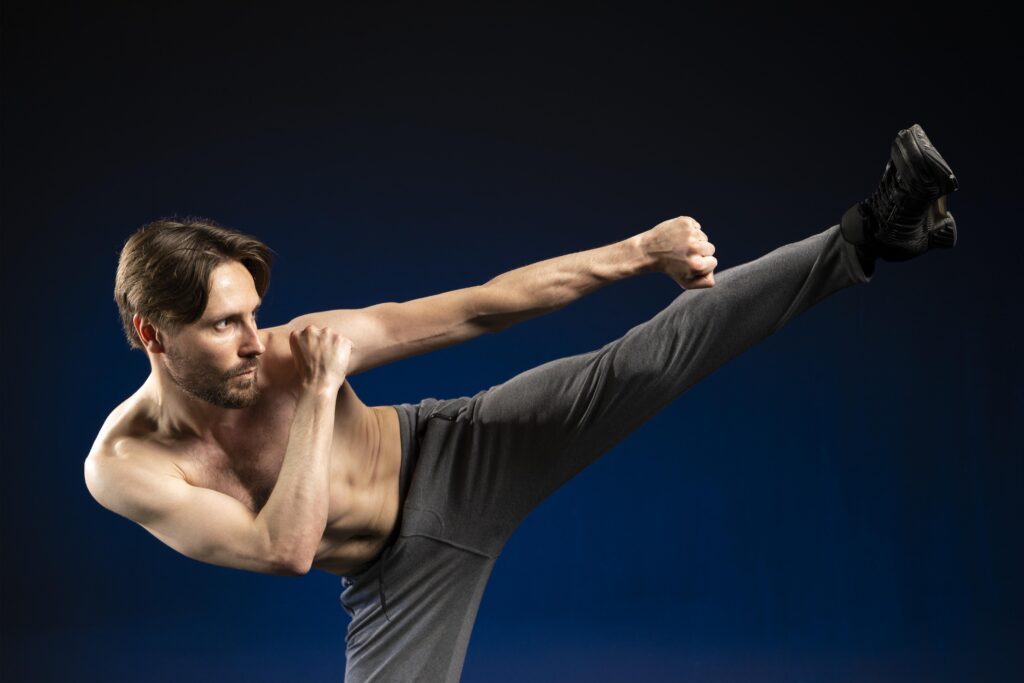Introduction
When people think of The Karate Kid, one of the first names that comes to mind is Johnny Lawrence. For decades, he was remembered as the bleach-blond high school bully who tormented Daniel LaRusso. But thanks to the hit series Cobra Kai, Johnny has transformed from a one-dimensional villain into one of the most relatable characters on television. His story is about second chances, personal growth, and the struggles of everyday life — and that’s exactly why fans connect with him so deeply.
The Johnny Lawrence We First Met
Back in 1984, Johnny Lawrence was the face of every teenage antagonist in a coming-of-age story. He was the leader of the Cobra Kai dojo, confident, cocky, and seemingly unbeatable. Dressed in his black gi and backed by his friends, Johnny embodied the “golden boy” stereotype — athletic, popular, and intimidating.
But beneath that image, there were hints of vulnerability. Even in The Karate Kid, you could see moments where Johnny wasn’t purely evil, just misguided. Still, to most viewers at the time, he was simply the bad guy who needed to be beaten.
The Man Behind the Stereotype
Cobra Kai flipped that perception on its head. When we meet Johnny decades later, he’s no longer the feared karate champion. Instead, he’s a man in his 50s struggling to find his place in a world that has moved on without him.
His apartment is small and messy, his job is unfulfilling, and technology seems like an alien language to him. He’s not living the dream — he’s barely getting by. This portrayal strips away the “villain” label and shows a flawed but authentic human being who made mistakes and is dealing with the consequences.
The Underdog Factor
One of the biggest reasons fans relate to Johnny Lawrence is that he’s become an underdog. Life didn’t go according to plan. He peaked in high school, and everything afterward seemed to spiral downward.
Many viewers can connect to the idea of missed opportunities, regrets, and feeling like the world has passed them by. Watching Johnny fight to rebuild his life makes people root for him, even if he doesn’t always make the right choices.

Humor and Honesty
Johnny’s personality is a mix of outdated views, blunt honesty, and unintentional humor — and that combination is oddly refreshing. In a time when so much communication feels scripted or filtered, Johnny says exactly what’s on his mind, for better or worse.
His humor often comes from his inability to adapt to modern culture. Whether it’s misunderstanding social media or giving hilariously blunt advice, he’s authentically himself, and that’s something many people secretly wish they could be.
Redemption and Growth
Perhaps the most compelling part of Johnny’s journey is his slow but genuine transformation. He’s not a perfect mentor, but he works hard to guide Miguel and other students. He teaches them discipline, resilience, and confidence — lessons he’s also relearning for himself.
This redemption arc resonates because it’s not instant. Johnny stumbles, backslides, and has to start over multiple times. That persistence makes his victories feel earned and inspiring.
A Reflection of Real-Life Struggles
Johnny’s challenges mirror what many people face in real life:
- Career setbacks.
- Broken relationships.
- Struggling to adapt to change.
- Learning to forgive yourself for past mistakes.
Seeing a fictional character deal with such grounded problems makes him feel less like a TV character and more like someone you might actually know. His story says, “It’s never too late to turn things around.”
The Nostalgia Connection
For fans who grew up watching The Karate Kid, seeing Johnny again is like catching up with someone from your past. But Cobra Kai doesn’t just rely on nostalgia — it adds depth to his character and introduces him to a whole new generation of viewers.
Younger fans discover Johnny through a modern lens, while older fans see a familiar face grappling with the same aging and life challenges they are. That shared nostalgia bridges generations of viewers.
Why Johnny Lawrence Resonates With Different Audiences
What makes Johnny unique is his cross-generational appeal. Teenagers admire his rebellious spirit, adults relate to his struggles, and long-time fans appreciate the redemption of a misunderstood character.
His flaws make him approachable, his humor makes him entertaining, and his growth makes him inspiring. This layered personality is why people don’t just watch Johnny’s journey — they feel it.
Lessons We Can Learn From Johnny Lawrence
Johnny’s story offers more than entertainment. It’s a reminder that:
- People can change, no matter their past.
- Accepting your mistakes is the first step toward growth.
- Staying true to yourself matters more than fitting in.
- You’re never too old to chase a new dream.
These lessons are wrapped in humor, action, and heartfelt moments, making them all the more impactful.
Was Johnny Lawrence Really a Bad Person or Just Misunderstood?
In The Karate Kid, Johnny was clearly positioned as the antagonist. He was the loud, confident leader of Cobra Kai who bullied Daniel LaRusso. But Cobra Kai revealed another side — a young man shaped by tough circumstances, misguided mentorship, and immaturity. He wasn’t purely evil; he was a flawed teenager who made mistakes. That’s why many fans now see him as misunderstood rather than truly bad.
Why Did His Life Decline After High School?
Johnny Lawrence was at his peak when he was a high school karate champion. After that, without proper guidance or a support system, he drifted. Failed relationships, poor career choices, and unresolved personal issues all played a role. Life moved forward, but Johnny didn’t — and that’s a reality many people can relate to, making his struggles all the more authentic.
Is His Bond with Miguel a Way to Make Up for Past Mistakes?
Absolutely. Johnny’s mentorship of Miguel feels deeply personal. It’s as if he’s trying to be the kind of role model he never had. Through Miguel, Johnny gets a chance to correct his own past missteps — both as a martial artist and as a person. Fans see this as a redemption arc, not just for him, but for the original Cobra Kai legacy.
Will Johnny Lawrence Ever Fully Overcome His Past?
That’s the big question. While Johnny has made significant progress, his past continues to haunt him — whether it’s old rivalries, lingering regrets, or his own self-doubt. Overcoming a lifetime of mistakes isn’t easy, and that’s what makes his journey compelling. The struggle itself is what keeps fans invested.
What If Johnny and Daniel LaRusso Became True Friends?
It’s a fan dream that’s been teased multiple times. When Johnny and Daniel work together, they make a powerful team because they balance each other’s strengths and weaknesses. Still, their shared history creates constant tension. If they ever truly bury the hatchet, it could be one of the most satisfying moments in the series.
Is Johnny’s Old-School Attitude His Strength or His Weakness?
Both. Johnny’s no-nonsense, straight-talking personality is refreshing in a world full of pretenses. It makes him relatable and sometimes hilarious. But it also creates misunderstandings and conflicts, especially in a modern setting. That tension between staying true to himself and adapting to change is central to his character development.
What Is Johnny Lawrence’s Biggest Regret?
While Johnny has plenty of regrets, one of the deepest is not living up to his potential. He knows he could have been more than just a high school champion. His failures in relationships, especially with his son, weigh heavily on him. This regret fuels his desire to do better — and that’s why fans root for his comeback.
Conclusion
The real reason fans relate to Johnny Lawrence isn’t just because he’s funny or nostalgic. It’s because he’s real. He’s a man who’s made bad choices, faced the consequences, and is doing his best to make things right. His journey reminds us that redemption is possible, second chances are worth taking, and growth can happen at any stage of life.
Johnny Lawrence may have started as the antagonist, but today, he’s one of the most relatable and beloved characters on television — and that’s a transformation worth celebrating.
References
- The Karate Kid (1984) – Directed by John G. Avildsen
- Cobra Kai series – Created by Josh Heald, Jon Hurwitz, and Hayden Schlossberg
- Interviews with William Zabka discussing Johnny Lawrence’s evolution
- Cultural commentary on redemption arcs in modern television
FAQs
1. Was Johnny Lawrence always meant to be a relatable character?
No, in The Karate Kid he was intended as the antagonist, but Cobra Kai reimagined him with more depth and humanity.
2. Why do fans root for Johnny despite his flaws?
Because his mistakes and struggles feel real, and his effort to improve makes him inspiring.
3. Is Johnny Lawrence based on a real person?
No, but his challenges are relatable because they reflect common real-life experiences.
4. How has Johnny changed over the years?
He’s gone from a cocky teenager to a flawed but determined mentor, learning from his past along the way.
5. What makes Johnny different from other TV characters?
His mix of humor, honesty, and slow but steady growth makes him stand out as unique and authentic.












































